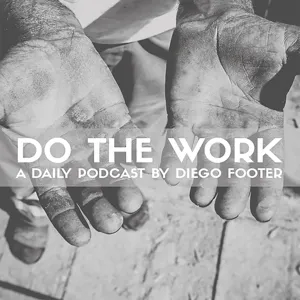Podcast Summary
Recognizing the loss of a rite of passage for graduates: Despite the pandemic, graduates have the right to feel sad about missing out on traditional ceremonies. Everyone's experiences with hardship are unique, and it's essential to acknowledge fears while recognizing graduates' resilience and adaptability.
It's okay to feel sad about missing out on traditional graduation ceremonies despite the challenges faced by many during these unprecedented times. Graduates have every right to grieve the loss of this rite of passage, and their feelings shouldn't be diminished by the greater suffering of others. The pandemic has brought about a multitude of anxieties, including concerns about employment, happiness, and student loans. It's essential to acknowledge these fears while also recognizing that everyone's experiences with hardship are unique. The Class of 2020's resilience and adaptability in the face of adversity will serve them well as they embark on their post-graduation journey.
Embrace disruptions as opportunities for growth: Disruptions in life can lead to new discoveries and hidden talents, so instead of fearing them, embrace them as opportunities for personal growth
Periods of chaos and disruption in our lives can lead to new discoveries and reinventions. Maya Shankar's story illustrates this idea beautifully. As a child, she was passionate about music and became a promising violinist. But after an injury forced her to give up the violin, she felt lost and unsure of her identity. However, during this time of uncertainty, she stumbled upon a book about the human mind and developed a newfound interest in cognitive science. This unexpected turn led her to a successful career in this field. So, instead of fearing disruptions, we should embrace them as opportunities for growth and self-discovery. Just like the London transit strike forced people to find new ways to get around, personal setbacks can push us to explore new paths and uncover hidden talents.
Embrace disruptions as opportunities for growth: Disruptions can lead to new discoveries and personal growth, so embrace them with an open mind and explore new possibilities
Even in the midst of chaos and disruption, there are opportunities for growth and new discoveries. Just like the London commuters who found new routines during a transit strike, we too can use unexpected changes as a chance to see the world with fresh eyes and explore new possibilities. As the speaker reminds us, we often become so accustomed to our daily routines that we fail to appreciate the world around us. When faced with uncertainty, we can take a moment to celebrate our accomplishments, reflect on our past, and consider our future directions. So, next time you encounter a disruption in your life, embrace it as an opportunity for personal growth and exploration.






![David McCourt: Billionaire's Greatest Advice For Entrepreneurs [Business, mindset, entrepreneur, disruptors]](https://www.podcastworld.io/podcast-images/disruptors-kt0uj0xy.webp)